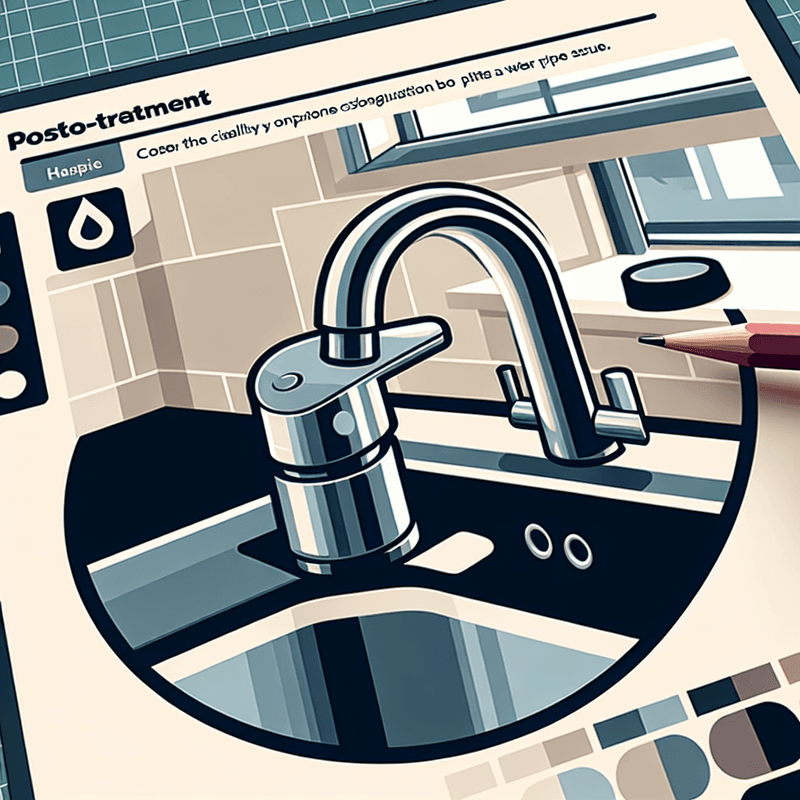Have you ever faced the trouble of water pooling in your sink longer than usual, or an unpleasant odour pervading your kitchen or bathroom? Such signals are common indicators of a blocked drain, a usual but disruptive problem that plagues many households. This post explores the nuisances caused by blocked drains, their underlying reasons, effective solutions, and long-term preventive measures.
Imagine this — one morning, as you prepare for your day, you find the bathroom floor flooded, or the kitchen sink filled with murky water from last night. Not only is this situation stressful, but it also disrupts your daily routine and poses health risks if not attended to promptly. Understanding the causes and solutions to blocked drains is not just about fixing an immediate problem, it's about safeguarding the health of your home's environment.
How Drains Become Blocked
Drain blockages can occur for a plethora of reasons. In kitchens, the usual suspects include congealed fat and cooking oils that solidify within the pipes. In bathrooms, the culprits are often hair, soap scum, and other personal care products. Another not-so-obvious cause is the build-up of minerals and other sediments which can gradually narrow the diameter of the pipes, reducing water flow and catching other debris that would otherwise flow freely.
Signs of a Blocked Drain
Knowing early signs can save you from more severe complications later. Here are some indicators:
- Slow draining of water in sinks, bathtubs, or showers.
- Gurgling noises coming from the drains.
- Unpleasant odours emanating from the drain.
- Raised water levels in toilets.
Immediate Actions to Take
If you see any of the above signs, a few immediate actions can help:
- Use a plunger: This tool can help to dislodge any blockages caused by superficial debris.
- Baking soda and vinegar: A natural alternative to chemical cleaners. Pour half a cup of baking soda followed by half a cup of vinegar down the drain, cover with a wet cloth for about an hour, then flush with hot water.
- Boiling water: Simple yet effective, especially for fat and grease build-ups. Pour gradually down the drain in two to three stages, allowing the hot water to work between each pour.
When to Use Drain Snakes and CCTV
For more stubborn blockages, manual tools such as drain snakes can be useful. They are long, flexible, and can be pushed through the drain to remove blockages mechanically. However, proper handling is crucial to avoid damaging your pipes.
CCTV drain surveys are a step up in tackling drain issues. They involve sending a camera down into your drainage system to get a real-time view of what's going on inside your pipes. This method is particularly useful for identifying issues like root ingress or structural damage, which aren't easily fixed by conventional blockage removal methods.
The Role of Professional Drain Inspection Services
While DIY methods are suitable for minor blockages, serious or recurrent issues merit professional attention. Drain inspection professionals use advanced tools and techniques like high-pressure water jetting and CCTV surveys to diagnose and resolve drainage problems accurately.
Long-term Prevention Tips
Prevention is always better than cure. Maintain your drains with these habits:
- Regularly clean drains: Don’t wait for a blockage. Regular cleaning keeps large blockages at bay.
- Watch what goes down: Avoid pouring oils, fats, coffee grounds, and non-biodegradable substances down the drain.
- Install drain strainers: These catch hair and debris, preventing them from entering your plumbing system.
Eco-friendly Drain Maintenance
Embrace more sustainable practices in maintaining your drainage system:
- Natural cleaners: Use baking soda, vinegar or lemon and hot water as regular cleaners to maintain a free-flowing drain and neutralise odours.
- Plant-based soaps and detergents: They are less likely to contribute to residue build-ups in your pipes.
Conclusion
Blocked drains are a common issue that can cause significant inconvenience. By understanding the common causes and early signs, you can take timely action to prevent or remedy blockages. For persistent or complex blockages, do not hesitate to contact professional drain inspection services. Remember, taking proactive steps and adhering to preventive measures can lessen the frequency and severity of drain blockages, ensuring your home’s plumbing functions smoothly and efficiently.
Incorporate these practices into your regular home maintenance routine, and you'll see fewer issues and enjoy peace of mind regarding your home’s drainage health.





